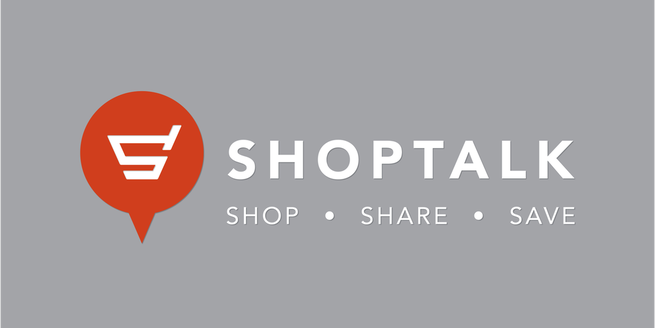Armed with a background in finance and math and a zeal for building a great product, Crow decided to go all in on ShopTalk upon graduating in May and has quickly learned some tough but valuable lessons that most 22 year olds have yet to even fathom. Crow took some time between pitching to investors and hiring a staff to discuss the exciting journey of running and building a company like ShopTalk. Click read more for the full interview.

ShopTalk was founded originally by Kyle Kober and I, both interning for investment banks/private equity groups on the East Coast (NYC and Boston). We were interested in doing a side project together and we looked at two big trends in social media - the success of Shopify & Facebook's floundering IPO. Tons of people were sharing what they were listening each and every day, while Facebook's stock was tanking - due to what we thought was because of ineffective and unreliable ad revenue. So we thought - could we incentivize online shoppers to share their purchases on the Facebook news feed - where everyone was looking at anyways - to provide more effective and social advertising. These ads would not be "SPAMy" or annoying, but more so disguised referrals from your network of friends.
What make ShopTalk better than the other apps or services out there trying incentivize consumers to share what they purchase?
The majority of companies that try to socialize the process of online shopping, or eCommerce, typically give out post-purchase rebate codes. These are ineffective because they cause the shopper to go through a long process to get their friends to buy things that will reward them later down the road. Shoppers really do not want to have to do extra work to save a buck, and they want to be rewarded as quickly as possible. So we are the only company that makes the user/customer experience very simple, only service that is fully automated and integrated with Facebook, and we can provide powerful analytics that show what type of buyer is sharing which type of products.
How do you get over the challenge of consumers not wanting to share anything and everything on their social networks?
That is definitely a key hurdle - no one likes SPAMing your Facebook friends. But consider this - how many Candy Crush requests have you gotten in the last month? And those players that are doing that are just playing a game. We hypothesize that when shoppers can easily see how much money they will save when browsing and checking out that hitting a few buttons will be worth the nice and clean FB post. Additionally, we are targeting brands and stores that have very trendy, "shareable" items that people would naturally share. For instance, if I got tickets to go see a concert festival, or new pair of cool Chubbies, or a nice watch, etc...
What has the response been like, both positive and negative, from investors as you guys go about seeking funding?
We have been trying to get fundraising for a long time, and unfortunately have not found a perfect match. We are looking for investors that will be able to have a strong network in the eCommerce space as well as money for us to spend on development and marketing. We are waiting to hear as a finalist for the Bizdom accelerator in Detroit that would give us $25,000 and office space in Detroit this fall. Since we only have 3 stores using our software and we are awaiting an upgrade (later this week) we have held back reaching out to other retailers. So a lot of investors want to see "traction" (the key word) and in our case that is how effective it has worked for XX number of stores - and we believe that number is in the double digits, maybe a bit higher. Since none of the original 3 members are coders, it has been expensive to get to this post-idea stage and into an actual launching stage. We have learned a lot of lessons on what kind of coding you need, how outsourced development can be dangerous, and hiring a CTO is a very delicate process (our first CTO walked out on us a day before his paperwork arrived for a stake in the company).
Are there particular kinds of retailers or shoppers that work best with ShopTalk, or what is your target market for both consumers and retailer?
As previously said before, we are looking for smaller to medium sized stores that have niche, cool, trendy, or shareable products that users would naturally want to share with their friends (Chubbies, Tom's, concert tickets, vacation packages etc..). We think that a younger customer base would be more liberal with sharing as well. We currently run on one eCommerce platform (website that hosts stores) which is Magento that has about 150,000 stores on its platform (it is the best and biggest). We plan to build out our analytical offering then expand to other shopping cart platforms.
What has been the most important lesson you learned while trying to grow ShopTalk with your fellow co-founders?
Doing a startup can be extremely stressful - especially if you are budgeting and handling paying the bills (me), but it can be done with the right group of people. Not only finding co-founders with the same passion, you have to have each team member contribute in different and every way. I have learned a great deal of networking, public speaking, marketing, and pitching skills that I would not have otherwise grasped at a traditional job. I think its very possible for young entrepreneurs to work on a startup during a regular job or during college, it just takes a large commitment of your entire life and your relationship with your friends and family. Also, make sure you find the PERFECT technology guy. If you can't code/program it yourself, pretend like you're trying to find the person you are going to marry. They have to be driven, passionate, extremely talented, and dedication to work on delivering your product/service.
What advice would you give to other entrepreneurs trying to develop a product or company while still in college?
Always think of problems from every perspective if you're trying to think of an idea. It IS definitely possible and I highly recommend everyone always to be thinking and devising little side projects - that's how innovation starts! Your "AHA!" or Eureka moments will not happen just in a split second - they grow over time. It's also way better if you find a partner or partners that are as passionate as you are and have the right skills to do it (pretty much every single aspect of business, the right skills for the technology, etc..). You will have to make sacrifices (grades, sleep, extra money, going out, etc..) Also, work work work your networks - alumni network, professor networks, family networks, and friend networks - you never know who can you help your or make the right introductions.

 RSS Feed
RSS Feed
